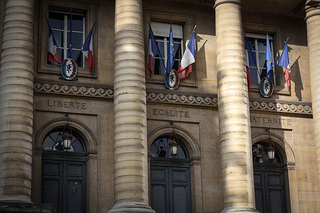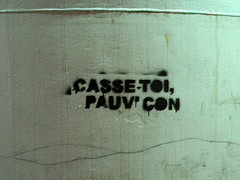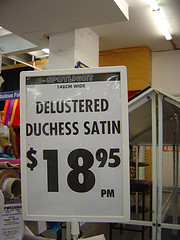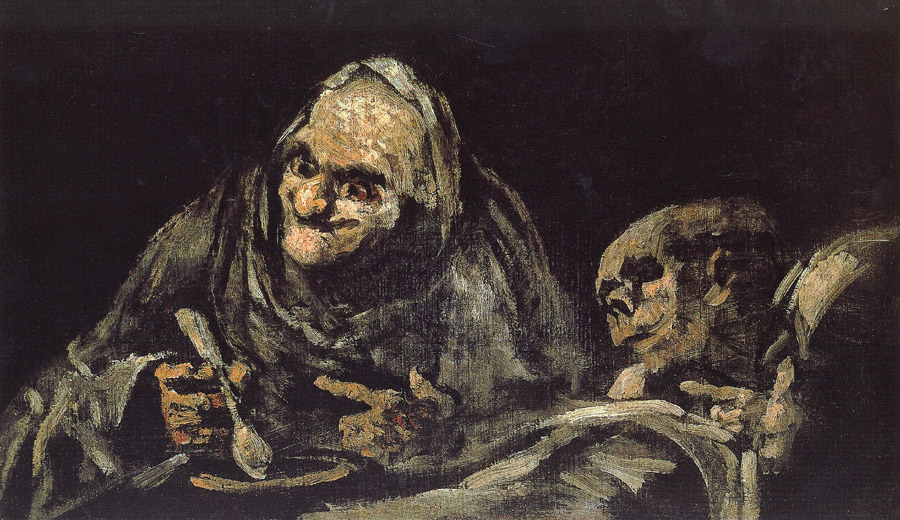Copyright 2007-25 Digital Media Law Project and respective authors. Except where otherwise noted,
content on this site is licensed under a Creative Commons Attribution-Noncommercial-ShareAlike 3.0 License: Details.
Use of this site is pursuant to our Terms of Use and Privacy Notice.
content on this site is licensed under a Creative Commons Attribution-Noncommercial-ShareAlike 3.0 License: Details.
Use of this site is pursuant to our Terms of Use and Privacy Notice.


 On December 19, 2013, the French
On December 19, 2013, the French  On November 6, the Paris Tribunal de Grande Instance (TGI) ordered Google and Google France to withdraw and stop displaying in their search engine results, for a period of five years, nine pictures of British citizen Max Mosley. By doing so, the TGI refused to consider Google as a mere Internet intermediary that provides hosting and/or caching functions.
On November 6, the Paris Tribunal de Grande Instance (TGI) ordered Google and Google France to withdraw and stop displaying in their search engine results, for a period of five years, nine pictures of British citizen Max Mosley. By doing so, the TGI refused to consider Google as a mere Internet intermediary that provides hosting and/or caching functions. The Legal Committee of France's Chamber of Representatives voted unanimously on March 27 to propose to repeal the offense of insulting the President of the Republic, which is still a crime under article 26 of the French Press law. French Representatives will now vote on April 18 to adopt the proposal to repeal article 26, then will send the proposal to the Senate.
The Legal Committee of France's Chamber of Representatives voted unanimously on March 27 to propose to repeal the offense of insulting the President of the Republic, which is still a crime under article 26 of the French Press law. French Representatives will now vote on April 18 to adopt the proposal to repeal article 26, then will send the proposal to the Senate.
 Last October
Last October  On October 16, the Union des Étudiants Juifs Français (Union of French Jewish Students, UEJF) asked Twitter to remove several racist and anti-Semitic tweets. Using the hashtags #unbonjuif and #unbonmusulman ("agoodjew" and "agoodmuslim," respectively), some Twitter users were posting derogatory comments about Jews and Muslims, some allegedly meant to be 'jokes.'
On October 16, the Union des Étudiants Juifs Français (Union of French Jewish Students, UEJF) asked Twitter to remove several racist and anti-Semitic tweets. Using the hashtags #unbonjuif and #unbonmusulman ("agoodjew" and "agoodmuslim," respectively), some Twitter users were posting derogatory comments about Jews and Muslims, some allegedly meant to be 'jokes.'
 On September 14, French weekly gossip magazine Closer published several pictures of the Duke and Duchess of Cambridge taken without their consent while they were spending a weekend at a private villa in the South of France. Some of the pictures showed the Duchess wearing only the bottom of a bikini suit.
On September 14, French weekly gossip magazine Closer published several pictures of the Duke and Duchess of Cambridge taken without their consent while they were spending a weekend at a private villa in the South of France. Some of the pictures showed the Duchess wearing only the bottom of a bikini suit. When hearing the expression “lèse majesté,” images of the Queen of Hearts ordering heads to be chopped off ASAP may come to mind. Marie-Antoinette, the queen who was once a “majesté” in France, herself lost her head during the French Revolution. Surely, the crime of lèse majesté is now a thing of the past?
When hearing the expression “lèse majesté,” images of the Queen of Hearts ordering heads to be chopped off ASAP may come to mind. Marie-Antoinette, the queen who was once a “majesté” in France, herself lost her head during the French Revolution. Surely, the crime of lèse majesté is now a thing of the past?
 A French court last month stomped on what we in the United States consider a “basic, vital, and well-established liberty” – the right to record and publish the public activity of police.
A French court last month stomped on what we in the United States consider a “basic, vital, and well-established liberty” – the right to record and publish the public activity of police.
 I recall a
I recall a 
 Last week was a tough one for Internet users worldwide.
Last week was a tough one for Internet users worldwide. Let’s review the two basics of modern criminal law:
Let’s review the two basics of modern criminal law:

Description:
Hermès requested 100 million dollars in damages, alleging damages in the amount of two million dollars per trademark that was counterfeited or infringed.
After reviewing Hermès's complaint, District Court Judge Cote granted a temporary restraining order against the defendants on March 6, 2012. At this time, Judge Cote also established a March 16, 2012 deadline for the defendants to file an answer and ordered that they appear in court to show cause on March 20, 2012. The order also permitted service by email, which was verified on March 8, 2012.
On March 21, 2012, Judge Cote ordered a preliminary injunction against the defendants regarding the use of the Hermès trademarks and granted domain name seizure on an ex parte basis.
Hermès further filed a motion for default judgment against all of the defendants on April 13, 2012. In this motion, Hermès argued that that the defendants' failure to appear justifies the entry of a default judgment, in the form of enhanced statutory damages of 100 million dollars and permanent injunctive relief. On the same day, Hermès's attorney, Joseph C. Gioconda, filed a declaration in support of Hermès's motion for default judgment.
On April 19, 2012, Judge Cote issued to the defendants an order to show cause by appearing on April 27, 2012 to defend against an entry of default judgment. None of the defendants responded or appeared, and therefore on April 27, 2012, less than two months after the original complaint was filed, Judge Cote granted Hermès's motion for default judgment. Judge Cote awarded Hermès 100 million dollars in statutory damages and permanently injoined the defendants from use of the Hermès trademarks, designs, and/or domain names.